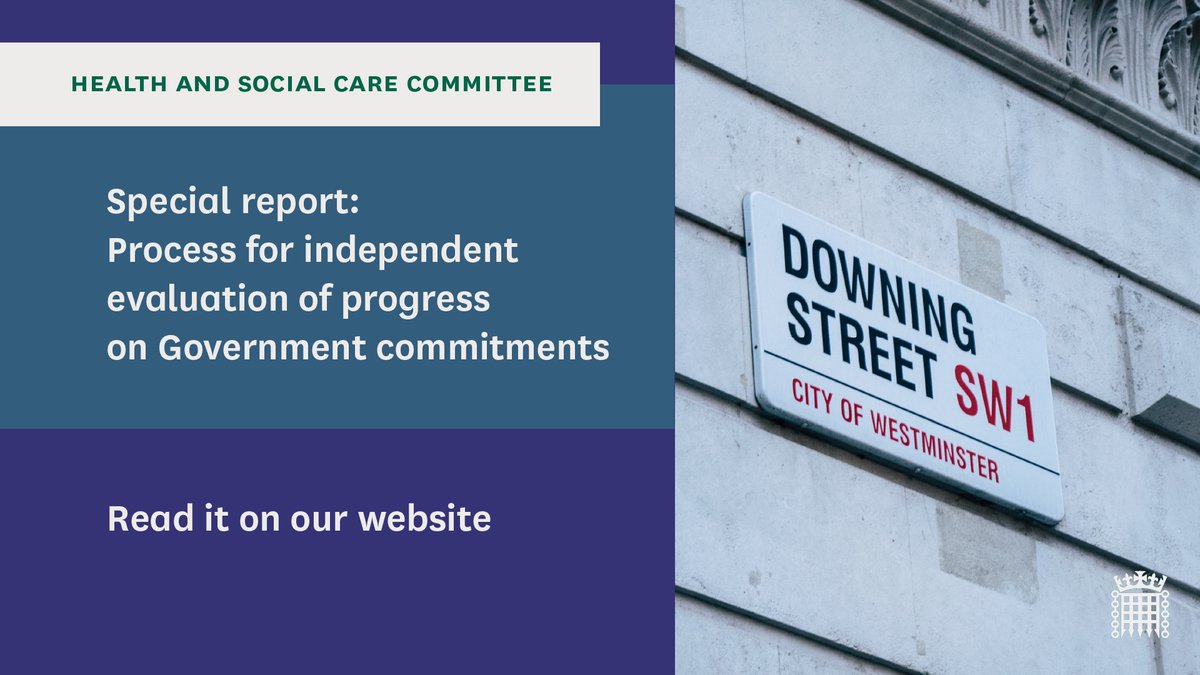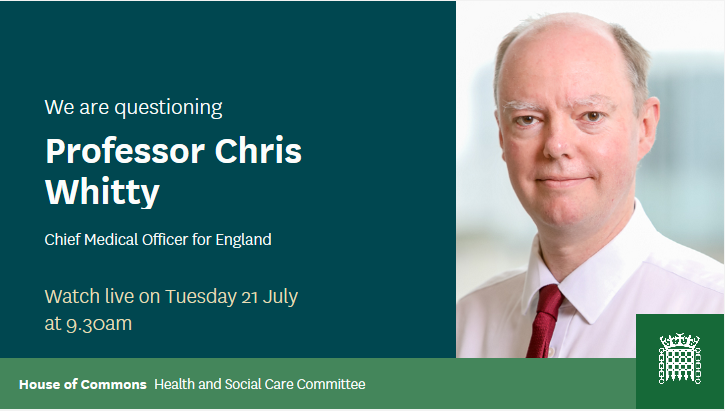
Our #HSCCWorkforceBurnout session on the impact burnout has on mental health among NHS and social care staff is about to begin.
Witnesses include:
@CNagpaul
@paulfarmermind
@ClareGerada
@DrAdrianJames
@vicrayner
Watch live parliamentlive.tv/Event/Index/1d…
Follow for tweets 👇
Witnesses include:
@CNagpaul
@paulfarmermind
@ClareGerada
@DrAdrianJames
@vicrayner
Watch live parliamentlive.tv/Event/Index/1d…
Follow for tweets 👇
https://twitter.com/CommonsHealth/status/1328385061184548864
We're hearing from Denise Crouch @Mac_Campaigning first of all, who talks about the added pressure COVID-19 put on nurses, who are ‘COVID-fatigued.’ She herself worked long hours, being redeployed on top of her day job #HSCCWorkforceBurnout
During the first wave of COVID-19 it felt like 'Groundhog Day every day', says Denise Crouch @Mac_Campaigning. She was shattered but says she also felt privileged to contribute.
Discussing staffing in cancer services, Denise Crouch @Mac_Campaigning says the one in two people who will get cancer are going to need more support. She says we need the staff to be able to deal with patients, and late referrals are going to need more input.
Even before the pandemic 80% of doctors reported being at very high risk of burnout, with 40% reporting anxiety, depression or burnout, says @CNagpaul #HSCCWorkforceBurnout
Seeing so much illness and death during the pandemic is something no doctor or nurse was prepared for, says @CNagpaul. Doctors told @TheBMA about the emotional impact of holding a smartphone so dying people could communicate with relatives, or treating their own colleagues.
Research shows changes to the ways doctors see patients during the pandemic mean doctors are actually having 20% more contacts than previously, @CNagpaul says. There should be a specification on workload limits – doctors do well beyond their contracted hours.
Investing in wellbeing is investing in patient care, says @CNagpaul. If doctors are stressed or under pressure they are more likely to make mistakes #HSCCWorkforceBurnout
BAME doctors face a backdrop of serious inequalities, says @CNagpaul. They are twice as likely to report bullying and harassment, but less likely to report safety concerns for fear of being blamed. 90% of doctors who have died from COVID were from a BAME background
@CNagpaul tells us that as a nation we haven't properly valued and welcomed our overseas doctors. We should recognise we are severely short of doctors and owe them a debt of gratitude #HSCCWorkforceBurnout
Thank you to our first panel @DeniseCrouch10 and @CNagpaul. Our second #HSCCWorkforceBurnout panel on mental health is about to start:
@paulfarmermind
@ClareGerada
@DrAdrianJames
@vicrayner
Watch live: parliamentlive.tv/Event/Index/1d…
Keep following our tweets 👇
@paulfarmermind
@ClareGerada
@DrAdrianJames
@vicrayner
Watch live: parliamentlive.tv/Event/Index/1d…
Keep following our tweets 👇
@ClareGerada says it's not just the hours worked but their intensity that is the issue, and adds that wellbeing resources have tended to go to the hospital sector rather than primary care #HSCCWorkforceBurnout
Doctors tend to have fewer risk factors for mental illness than the general population, @ClareGerada tells us, but are being put into impossible situations. We are seeing the trauma of COVID exposing previous trauma #HSCCWorkforceBurnout
The two most important solutions to workforce burnout are reducing workload intensity and providing space for front facing staff to talk about the difficult issues they are facing, says @ClareGerada #HSCCWorkforceBurnout
Workforce burnout should be seen as primarily a patient safety issue, says @DrAdrianJames. During a pandemic, we can't do much about the primary stressors - e.g. volume of work. But we can do something about the secondary factors, such as having enough staff.
At the beginning of the pandemic, the challenging task at hand was energising: the level of innovation, the positive public response and remote working have all been positive things, says @DrAdrianJames #HSCCWorkforceBurnout
Covid has provided the most enormous wake up call for the NHS about the fundamental need to look after your staff says @paulfarmermind #HSCCWorkforceBurnout
You need to tackle the stigma within organisations and have a clear offer that every member of staff is aware of for those who are struggling, @paulfarmermind adds
Many NHS and social care staff have extraordinary levels of resilience, says @paulfarmermind, but everyone has their limit. Supervisors need to be aware of the signs of stress. It would be great if some services offered through the NHS were also offered to families of NHS staff.
We went into this pandemic with high levels of stress in social care, @vicrayner tells the Committee. There was huge pressure on staff in care homes, giving end of life care without being able to share that burden with families, and no time to grieve the patients they lost.
@vicrayner describes the heightened fear facing care staff that they might pass COVID-19 to vulnerable people they care for outside of work. Sickness days have risen from 2.9% last year to 7.5% this year which has put huge pressure on social care staff.
Some social care employers are taking the lead, e.g. with mental health first aid training. But there is no clear understanding of what occupational health should be provided across organisations, says @VicRayner. All staff should have access to what is currently 'best practice.'
NHS and social care organisations should take a scorecard approach to mental health says @paulfarmermind, looking at negative indicators - such as mental health sickness absence, and positive indicators - such as how many people in staff surveys feel in control of their workload.
@DrAdrianJames says the People Plan is amazing but a lot of staff will look at it and think 'we just don't have time for all that.' The wellbeing offer can often be lost. Wellbeing is about how are staff feeling about themselves so they can provide the best possible care.
It's not OK that we don't have a detailed plan for those 1.6 million people working in social care, @vicrayner tells us. We need a fundamental commitment to protect and support them. We have to have that People Plan and resource it properly.
Our #HSCCWorkforceBurnout inquiry session on mental health has now ended.
Thank you to all our witnesses. Watch the recording at parliamentlive.tv/Event/Index/1d…
📗 Look out for the transcript.
Thank you to all our witnesses. Watch the recording at parliamentlive.tv/Event/Index/1d…
📗 Look out for the transcript.
• • •
Missing some Tweet in this thread? You can try to
force a refresh




